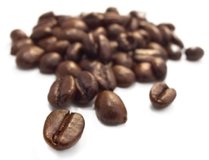
Until recently, I had avoided coffee for many years, because I noticed that just one cup a day caused my heart to go all a flutter. For some reason, though, I can now enjoy the occasional cappuccino, and not get, what at the time, were worrying palpitations – I now understand, of course, that for most of us these are not actually a sign of disease.
Some say their morning brew of roasted coffee beans is “essential” to a routine – the day would otherwise not run smoothly without a kick-start from that bitter liquid. So it can be a disappointment to find that coffee is a trigger of their gut problems.
My IBS patients who have their suspicions about coffee, report contrasting symptoms, ranging from bowel urgency to constipation. As with most problem foods or drinks, tolerance can be dose-related, so one cup of coffee might be okay for some people, but exceeding that threshold brings on trouble.
Is it always the coffee itself that is the culprit in that aromatic brew? A milky coffee, such as a latte delivers several potential suspects to an irritable gut: coffee components, such as caffeine; lactose which is the sugar naturally present in milk; and A1 protein, present in the majority of cows’ milk available in the UK.
Simple experimentation can help pin-point the source of the trouble in that hot drink. Does drinking it black trigger symptoms? If not, try coffee with A2 milk – this does not contain A1 protein. No better? Then try it with lactose-free milk. It’s important to wait until symptoms have settled before moving on to testing the next milk – and remember to ensure that all other suspected triggers are avoided during the experiment.
If black coffee does upset your gut, then it might be time to start the day with a different beverage. And who knows, giving the gut a ‘coffee break’ for a few months or so might be what it needs to develop tolerance to some coffee in the future. It worked for my heart!
Tony Hirving, RD
Some say their morning brew of roasted coffee beans is “essential” to a routine – the day would otherwise not run smoothly without a kick-start from that bitter liquid. So it can be a disappointment to find that coffee is a trigger of their gut problems.
My IBS patients who have their suspicions about coffee, report contrasting symptoms, ranging from bowel urgency to constipation. As with most problem foods or drinks, tolerance can be dose-related, so one cup of coffee might be okay for some people, but exceeding that threshold brings on trouble.
Is it always the coffee itself that is the culprit in that aromatic brew? A milky coffee, such as a latte delivers several potential suspects to an irritable gut: coffee components, such as caffeine; lactose which is the sugar naturally present in milk; and A1 protein, present in the majority of cows’ milk available in the UK.
Simple experimentation can help pin-point the source of the trouble in that hot drink. Does drinking it black trigger symptoms? If not, try coffee with A2 milk – this does not contain A1 protein. No better? Then try it with lactose-free milk. It’s important to wait until symptoms have settled before moving on to testing the next milk – and remember to ensure that all other suspected triggers are avoided during the experiment.
If black coffee does upset your gut, then it might be time to start the day with a different beverage. And who knows, giving the gut a ‘coffee break’ for a few months or so might be what it needs to develop tolerance to some coffee in the future. It worked for my heart!
Tony Hirving, RD
 RSS Feed
RSS Feed
